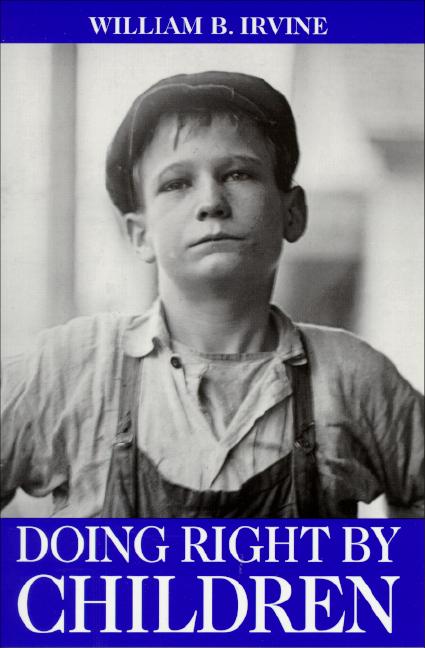“Take a look at the astonishing abuses children have been subjected to throughout the ages. Mr. Irvine exposes the cruelties children have incurred from the 1700's to modern day. Chimney sweeps and coal mine "donkeys", child movie stars and gymnists; European, Asian, American degradations. He suggests that parenthood needs to be examined more closely. Only persons who are committed to making personal sacrifices should consider parenthood. This is a must-read book recommended by The Informed Parent web site.” —Carol Samson, Book Review Editor
Parenting is stewardship
“In this great book on a topic neglected by philosophers for far too
long, philosopher William Irvine asks, “What is the proper norm for parenting?” He
notes that attitudes of parents changed in America between 1950 and
2000, so that divorce and having children out of wedlock are now
widely accepted. But this, he holds, has harmed children. They are
no longer
innocent, as they are engaging in sex and committing crimes that
just a few years ago were unimaginable.
Using ethical not religious reasoning and analysis, he concludes
that the right concept of parenting is the stewardship view.... Irvine’s
book deserves the attention of everyone concerned with children and
their welfare.”–Lloyd
Eby, Senior Editor, Currents in Modern Thought, The World & I
magazine
Fascinating and provocative...–Laura Purdy,
University of Toronto Joint Centre for Bioethics
Doing Right by Children begins with an examination of how the concept of childhood has changed over the centuries. Children were once treated as a form of property and were created simply so they could be exploited. In the seventeenth century, the lives of children began to improve. American parents, by 1950, had come to think of themselves not as owners of their children, but as stewards, whose job it was to look out for the best interests of their children. In the 1960s, though, the status of children began to decline, as parents grew increasingly reluctant to put the interests of their children ahead of their own desires. Divorce became commonplace, as did out-of-wedlock childbirth. Efforts to preserve childhood innocence came to be regarded as outmoded.
Doing Right by Children investigates various ethical issues regarding the parent/child relationship. Among the questions it attempts to answer are these: What kind of upbringing do parents owe their children? What are the proper goals of parenting? What kind of parents would we ourselves want to be raised by? How would we structure families if our primary interest were the well-being of children?
Doing Right by Children offers a spirited defense of the stewardship model of parenting. According to this model, parents are morally obligated to raise their children the way that they themselves would be raised if they could choose their own parents. The book then goes on to examine the implications this model has for the goals of parenthood, for the structure of families, and for people’s motivations for having children.
Table of Contents
Acknowledgments
Prologue
Part One: Childhood: The Evolution of a Concept
Chapter 1: The Uses of Children
Chapter 2: Child Stars
Chapter 3: What Price Childhood?
Chapter 4: The Invention of Childhood
Chapter 5: Childhood’s End?
Chapter 6: The Resurrection of Childhood?
Part Two: The Obligations of Parenthood
Chapter 7: Models of Parenting
Chapter 8: Choosing a Model of Parenting
Chapter 9: The Goals of the Steward-Parent
Chapter 10: Reinventing the Family
Chapter 11: Having Children
Epilogue
Notes
WILLIAM B. IRVINE has written widely on issues in public policy and applied ethics. It was these research interests, combined with his own experiences as a parent, that led him to write Doing Right by Children. Dr. Irvine is Professor of Philosophy at Wright State University in Dayton, Ohio.






